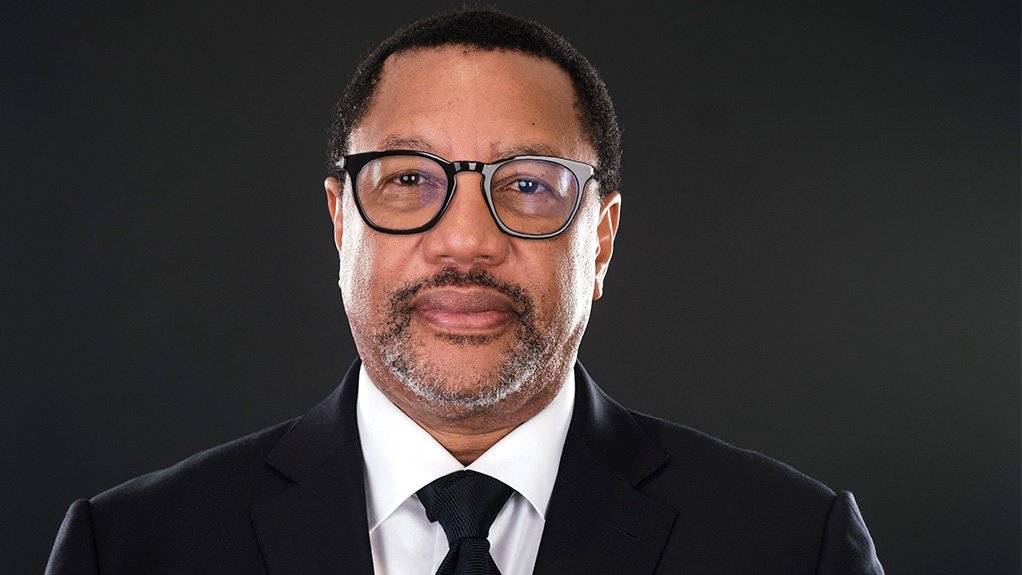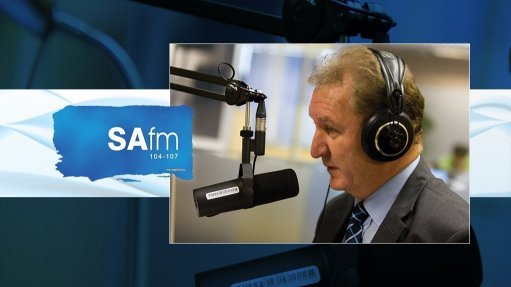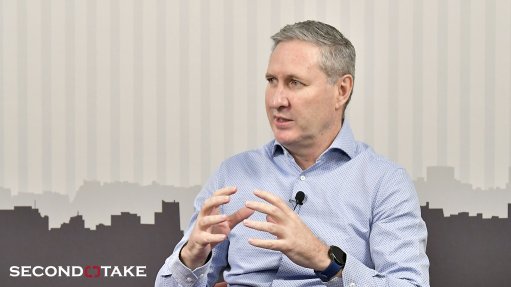JSE undertaking measures to mitigate de-listing, shrinkage
The JSE is undertaking several initiatives to mitigate de-listings and reduced market capitalisation, chairperson Phuthuma Nhleko said during the entity’s AGM on May 7.
Speaking to Engineering News prior to the meeting, consultancy and research provider AmaranthCX director Paul Miller posited that the entire public market ecosystem was “withering” and that the JSE’s communication did not reflect the extent of this problem.
“Companies are retreating from public markets across very many markets – and different governments have recognised that there needs to be a policy response. But in South Africa, the government either does not believe there is a problem, or the JSE has failed to get their support,” Miller averred.
He said primary capital raisings, and therefore new listings, on the JSE had come to a near standstill, pointing out that 2023 had been the worst year on record in this regard.
While he acknowledged that the JSE was doing what it could, he warned that, without an ecosystem of companies, brokers and advisers, among others, there would be no JSE, and that the ecosystem would die.
Miller and other attendees reiterated these points to the JSE representatives during the AGM, questioning why supportive policies the JSE had been pursuing had not been successful and failed to slow down the rate of de-listing.
Nhleko pointed out that, with several exceptions, stock exchanges globally were experiencing shrinkage – a product of the macroeconomic situation. He said that the exchanges that were growing were reflective of their environment, with such countries recording high gross domestic product growth, compared with South Africa’s own stagnating economic growth.
He emphasised that the JSE board had been engaging government and policymakers, but stressed this could not be the sole prerogative of the JSE.
Moreover, he expressed the JSE’s concerns about de-listings – a global trend that was exerting pressure on management.
In delivering his opening remarks, Nhleko asserted that creating the right environment for economic growth could not be the sole responsibility of the JSE and required a multifaceted approach, with business, government and regulators collaborating closely to develop a vibrant investment culture.
He averred that this goal could be achieved in several ways, with one of these being the creation of investment products. Reforms that encourage and enable active retail participation in the market would also contribute to achieving that goal.
This would, in turn, provide encouragement for small and medium-sized businesses to list, creating further growth in the country, he explained.
He pointed out that there were many successful examples of a collaborative approach, especially in the European market, with Denmark and Sweden being the most recent examples of a successful conducive ecosystem.
In this regard, Miller called for the board to also reflect more retail and entrepreneurial experience, rather than just that of big business, to ensure the JSE was able to attract such entities. Nhleko agreed with this point.
He said that, for its part in this evolution, the JSE had embarked on a process to radically simplify its listing requirements, and was considering a proposal to segment the main board to provide relief for smaller cap companies, and provide access to the market.
He said he was positive that post-election, efforts could be bolstered for the JSE to collaborate closely with government and regulators to reinvigorate the local market.
Nhleko also mentioned the impact of the Gaza genocide and displacement, socially and economically.
He said that while such geopolitical events impacted on the JSE’s market, it did not directly influence the market. Rather, the board must ensure management strategies were sound, well executed and its core operations strengthened.
As part of its Vision 2026 strategy, Nhleko said the JSE had already made important strides to diversify its revenues, reduce its reliance on equity trading and increase the proportion of non-trading revenue over the past four years. It will seek to further advance these goals this year.
Also queried was the work that the JSE was doing to ensure the health of the ecosystem that sustained it, as well as why policymakers had not done enough to encourage more listings on the JSE.
CEO Leila Fourie said the entity had been hosting roadshows with policymakers to encourage investment and to showcase that, despite the economic challenges, there were opportunities.
She said that to enhance, grow and develop the market, initiatives included a plethora of listing reforms and the introduction of a private placement market.
She said the JSE was also working with the ecosystem to engender a more inclusive environment to encourage more retail participation.
The JSE was also offering a new colocation service which was expected to reduce data costs for participants, she pointed out.
It has also introduced securities collateral which should reduce the ultimate cost of transactions.
Fourie said the exchange also recently introduced a “transformational project”, in collaboration with Amazon Web Services, to modernise its technology and reduce costs.
She stated that the entity was mindful of the economic environment, which had been constrained for many years, but was doing what it could in terms of controllables to crowd in involvement from market participants or reduce the cost to trade.
Fourie averred that the JSE was seeing the green shoots of initiatives launched to encourage inbound trading, with this having a positive impact on trading volumes.
Comments
Press Office
Announcements
What's On
Subscribe to improve your user experience...
Option 1 (equivalent of R125 a month):
Receive a weekly copy of Creamer Media's Engineering News & Mining Weekly magazine
(print copy for those in South Africa and e-magazine for those outside of South Africa)
Receive daily email newsletters
Access to full search results
Access archive of magazine back copies
Access to Projects in Progress
Access to ONE Research Report of your choice in PDF format
Option 2 (equivalent of R375 a month):
All benefits from Option 1
PLUS
Access to Creamer Media's Research Channel Africa for ALL Research Reports, in PDF format, on various industrial and mining sectors
including Electricity; Water; Energy Transition; Hydrogen; Roads, Rail and Ports; Coal; Gold; Platinum; Battery Metals; etc.
Already a subscriber?
Forgotten your password?
Receive weekly copy of Creamer Media's Engineering News & Mining Weekly magazine (print copy for those in South Africa and e-magazine for those outside of South Africa)
➕
Recieve daily email newsletters
➕
Access to full search results
➕
Access archive of magazine back copies
➕
Access to Projects in Progress
➕
Access to ONE Research Report of your choice in PDF format
RESEARCH CHANNEL AFRICA
R4500 (equivalent of R375 a month)
SUBSCRIBEAll benefits from Option 1
➕
Access to Creamer Media's Research Channel Africa for ALL Research Reports on various industrial and mining sectors, in PDF format, including on:
Electricity
➕
Water
➕
Energy Transition
➕
Hydrogen
➕
Roads, Rail and Ports
➕
Coal
➕
Gold
➕
Platinum
➕
Battery Metals
➕
etc.
Receive all benefits from Option 1 or Option 2 delivered to numerous people at your company
➕
Multiple User names and Passwords for simultaneous log-ins
➕
Intranet integration access to all in your organisation



















